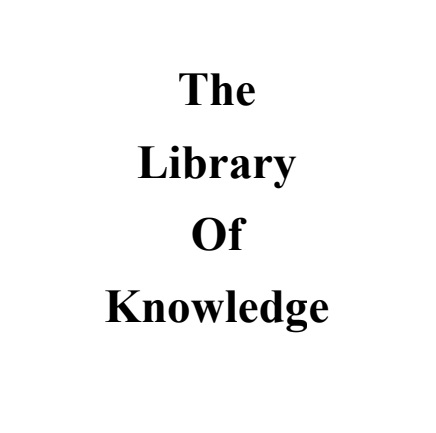How Social Media Shapes Characters and Plots in Tech Fiction
Social media has completely transformed the manner in which we communicate, form relationships, and view the world. No wonder it has also reshaped the world of literature, specifically in technology-focused novels.
At Junkybooks, we see an exciting trend: authors are using social media not just as a backdrop, but as a powerful force that defines character, drives plots, and even tests the notion of truth and identity.
In this post, we'll look at how today's tech novels use social media as part of their narrative — and what that says about the world we live in today.
The New Digital Environment: Setting the Stage
Traditionally, technology novels focused on such innovations as robotics, space exploration, or virtual reality. Today, social media platforms — Twitter, Instagram, TikTok, and their equivalent fictional ones — are the central themes of narratives.
Writers now build worlds where likes, shares, and online personas propel real-world actions.
In novels like Dave Eggers' "The Circle" and Lauren Beukes' "Broken Monsters," social media universes are focal spaces, determining not just ambient sound but also the most significant narrative arcs.
Characters no longer live in a vacuum. Their lives, choices, and reputations are subject to constant public scrutiny — mirroring our own hypernetworked existence.
How Social Media Shaping Characters
1. Construction of Identity
Social media encourages users to build idealized versions of themselves.
Similarly, characters in technology novels often grapple with double selves: their true selves and their selves online.
In "The Circle," Mae Holland's journey from a private citizen to an hyper-public self shows how platforms urge users to open up increasingly, erasing the line between truth and performance.
Readers are invited to ask: Are these characters living up to themselves, or to the algorithm?
2. Popularity and Validation
Shares, followers, and likes are the new tech novel currencies.
Characters yearn for external validation in their online identity — sometimes obsessively. They propel major plot points, from professional triumphs to personal breakdowns.
In novels like Hank Green's "An Absolutely Remarkable Thing", social media fame comes overnight and out of control, with the ecstatic highs and crushing lows of going viral.
Characters' self-esteem is typically tied to their online achievement, presenting emotional challenges that resonate deeply with readers today.
3. Loneliness Behind Connectedness
Paradoxically, characters in techno novels become lonelier the more connected they are on the internet.
Constant interaction via screens creates a paradox: millions of fans and no real closeness.
Writers capitalize on this tension to bring psychological depth, showing characters struggling with loneliness, discomfort, and an irrepressible sense of being surveilled — in a world where communication is omnipresent.
How Social Media Fuels Plot
1. Viral Moments as Triggers
Key plot events can be triggered by social media in an instant.
A tweet, a post, or a viral video has the power to ignite revolutions, destroy reputations, or uncover nefarious secrets.
In Annalee Newitz's "The Future of Another Timeline," characters use covert online networks to coordinate political activism, illustrating how quickly digital organizing can change the course of events.
Similarly, books often use viral moments — trending hashtags, leaked videos, meme wars — as narrative-pivoting moments that build tension and drive the plot.
2. Information (and Misinformation) Wars
In the contemporary era, the person who controls the narrative holds power.
Techno novels reflect this reality by illustrating how characters get manipulated or misled by campaigns of disinformation.
Novels like "Feed" by M.T. Anderson (though preceding the emergence of real-world social media) predicted the weaponization of internet information in order to form public opinion, influence elections, and even romantic relationships.
Disinformation spreads more quickly than truth, and here in these novels, the consequences can be lethal.
3. Surveillance and Invasion of Privacy
Social media transmits news, to be sure, but it also aggregates it.
In tech novels, characters most typically experience the ominous moment of comprehending that anything they do is never private.
Dave Eggers imagines in "The Every" (sequel to "The Circle") a world where everything one does, all communication, and every feeling is under watch for the sake of being connected and being safe.
All this omnipresent surveillance creates suspense, distrust, and ethical dilemmas that fuel the novel.
Themes Emerging from Social Media in Literature
1. Authenticity vs. Performance
How do you stay real when everything's a performance for people to see?
Books reveal the psychological toll of always being "on stage" on social media and the desire for genuine human interaction.
2. Speed vs. Thoughtfulness
Social media is lightning quick.
Characters usually act impulsively in the moment, performing based on fleeting feedback, which leads to irreparable mistake and a string of cascading consequences.
Authors highlight the dangers of living in a world of reaction where reason surrenders to habit.
3. Power and Influence
Social media gives individuals incredible power — but typically not the discernment to wield it wisely.
Narrative premises outline characters torn asunder by indiscriminate fame, mob mentality, and the irresistible appeal of power.
This is reminiscent of real-life stories of viral sensations who either thrive or implode glamorously.
4. Truth vs. Fiction
In the internet age, reality is plastic.
Novels ask: if enough people believe something on the internet, does it become true?
Characters grapple with fabricated tales that spread faster than any fact-checker can react.
This is a theme that resonates especially in an age of deepfakes, conspiracy theories, and alternate realities built through pixels.
Examples of Social Media-Fueled Novels
Below are some excellent examples where social media drives character and plot:
- "The Circle" by Dave Eggers: A tech company uses social media to promote radical transparency, with devastating effects.
- "An Absolutely Remarkable Thing" by Hank Green: Viral fame after discovering mysterious statues leads to personal and societal upheaval.
- "Followers" by Megan Angelo: A near-future look at how influencer culture reshapes identity and politics.
- "So You’ve Been Publicly Shamed" by Jon Ronson (non-fiction with novelistic storytelling): Explores real-world consequences of social media outrage.
"N.K. Jemisin's "Emergency Skin": Although not as explicitly interested in social media, it is interested in control of information in high-tech societies.
The Future of Social Media in Tech Novels
Fiction will change as the platforms of the world do.
We can expect books about:
- AI-generated influencers: How do we feel about celebrities who don't even exist yet?
- Augmented reality social media: What if filters are superimposed onto the real world in real time?
- Algorithmic governance: If algorithms rule our civic existence and social design, what are the new issues?
Authors will continue to wonder how new types of social media redefine our relationships, ethics, and worlds — as they always have.
Conclusion: Social Media the New Engine of Fiction
We observe it at Junkybooks: social media is now a character, a setting, and a motivator in modern technology fiction.
It establishes the characters of protagonists, fuels conflict, creates climactic moments, and compels us to raise urgent philosophical questions regarding the destiny of humankind.
By giving us a glimpse into our own virtual existence, we can come to understand them better ourselves — and quite likely even navigate them more wisely.
Indeed, the stories we relate about social media today might become the world that we live in tomorrow.









